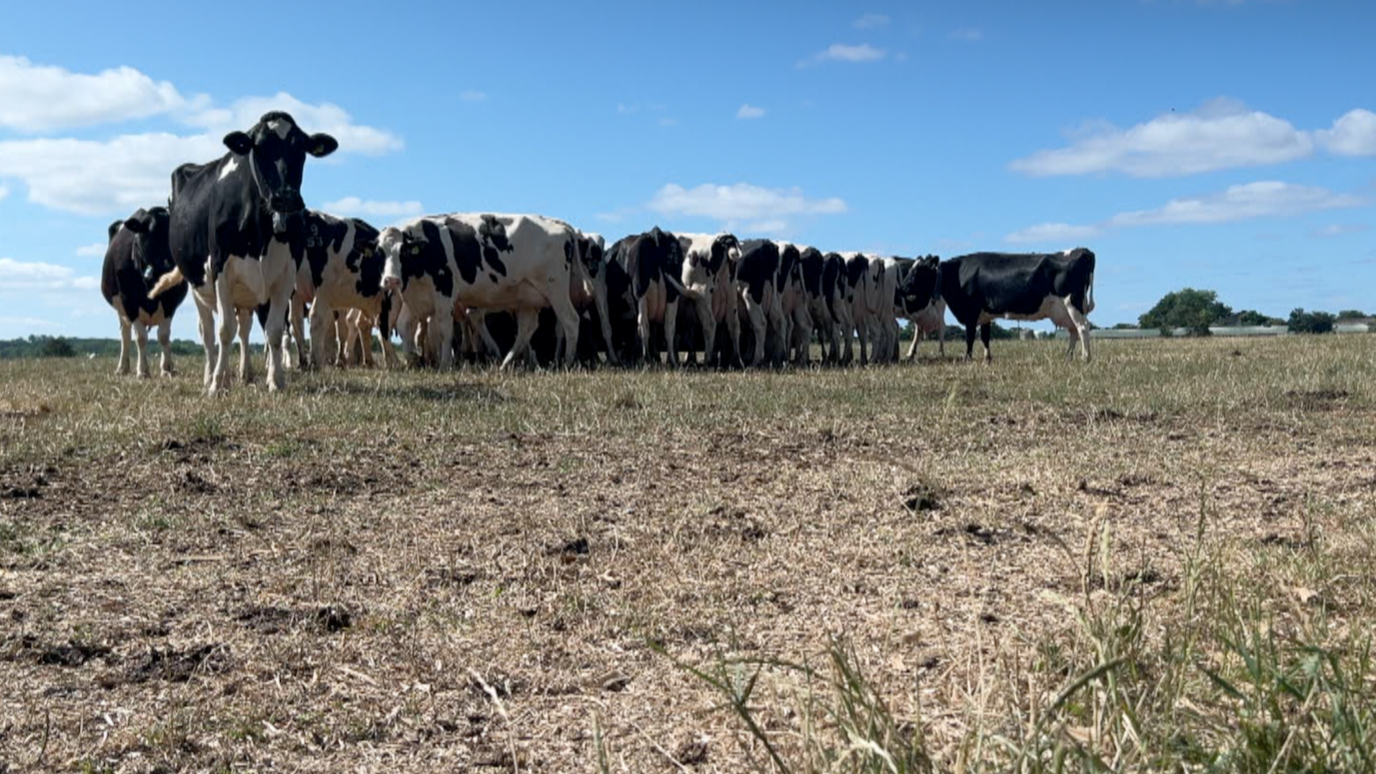Sun into sundaes for solar-powered ice cream maker
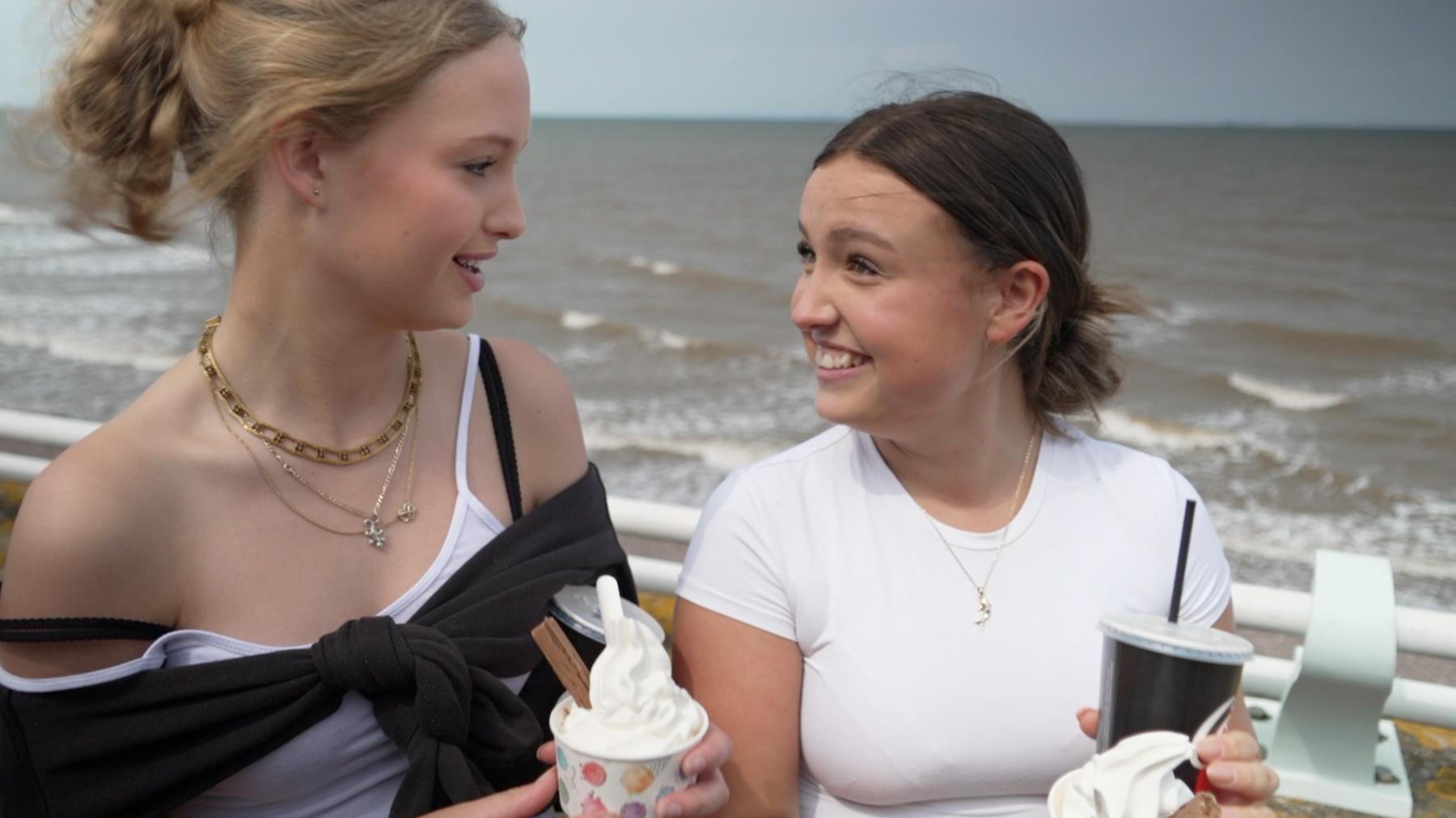
Friends Erin and Thea enjoying eco-softees from Styles Ice Cream at Blue Anchor Bay in Somerset
- Published
A Somerset ice cream maker has produced record amounts of its power from the sun – and is aiming for more.
David Baker, founder of Styles Ice Cream, built the UK's first solar-powered ice cream van in 2020, and is now fitting solar panels to his production dairy as well.
This summer has brought more sunny hours than normal, helping produce 30% of the power needed to make Mr Baker's ice cream.
But he wants that number to be higher. "I believe we can do 80% of our energy from the solar, because we're a summer business and we need most of our power through the summer," he said.
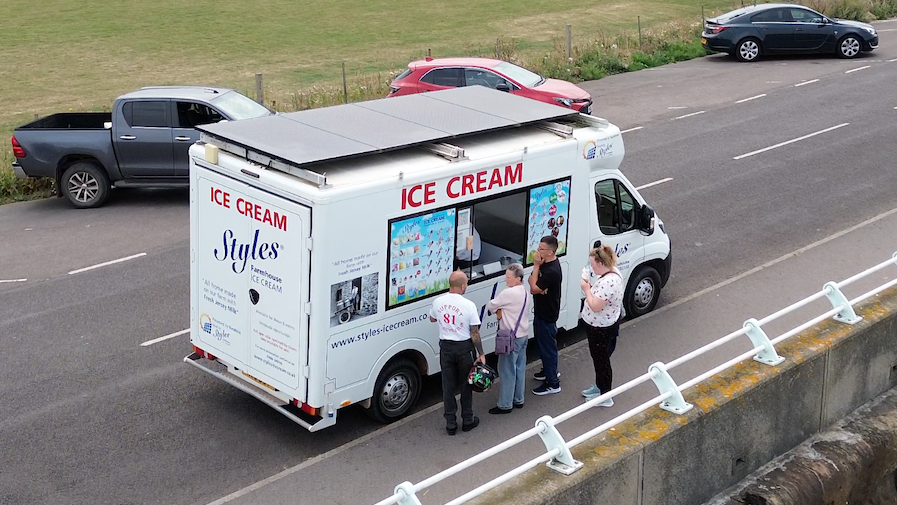
The freezers on Styles vans are powered by solar panels
When I visited Mr Baker's dairy on a sunny August day, staff were pumping chocolate orange ice cream into pots.
Stainless steel vats were filled with milk heated to 67C (153F) – to pasteurise it – which steamed while being gently stirred.
Power is needed everywhere in an ice cream dairy – for heating, pumping, stirring, and, above all, freezing.
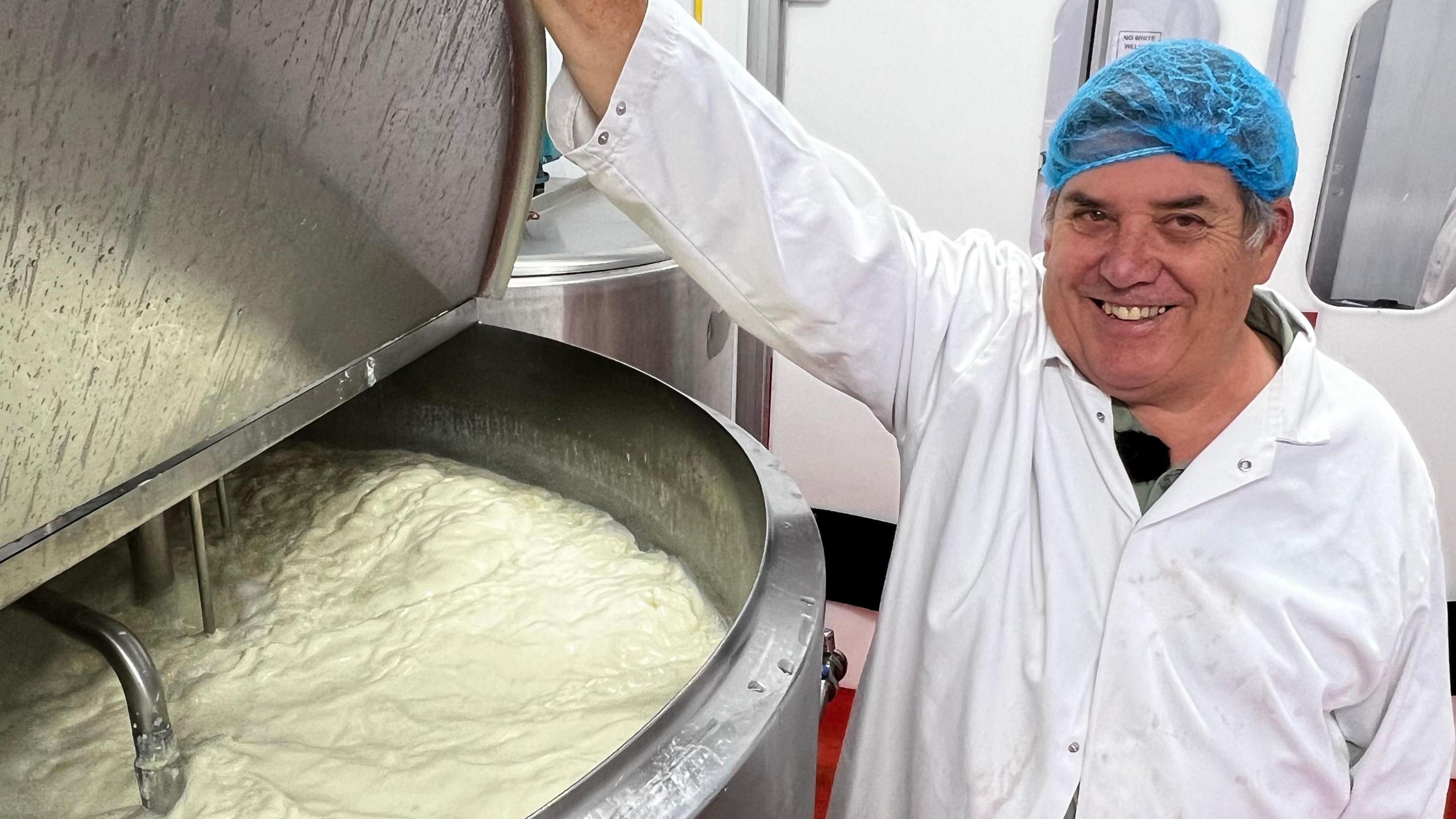
David Baker lifts the lid on one of his milk-pasteurising vats
I followed Alfie, a young worker, into one of five freezers, each the size of a shipping container. It was hot outside, but Alfie's Arctic-style fake fur hat gave away his role.
"Yes, it's pretty cold in here!," he smiled.
Mr Baker told me the whole system consumes 110 kilowatts, all day long.
You can see why he wants to make his own energy.
Mr Baker founded the business on an Exmoor farm in 1988, making ice cream out of a neighbour's milk.
He has now moved into his own premises, and is busy covering the buildings with solar panels.
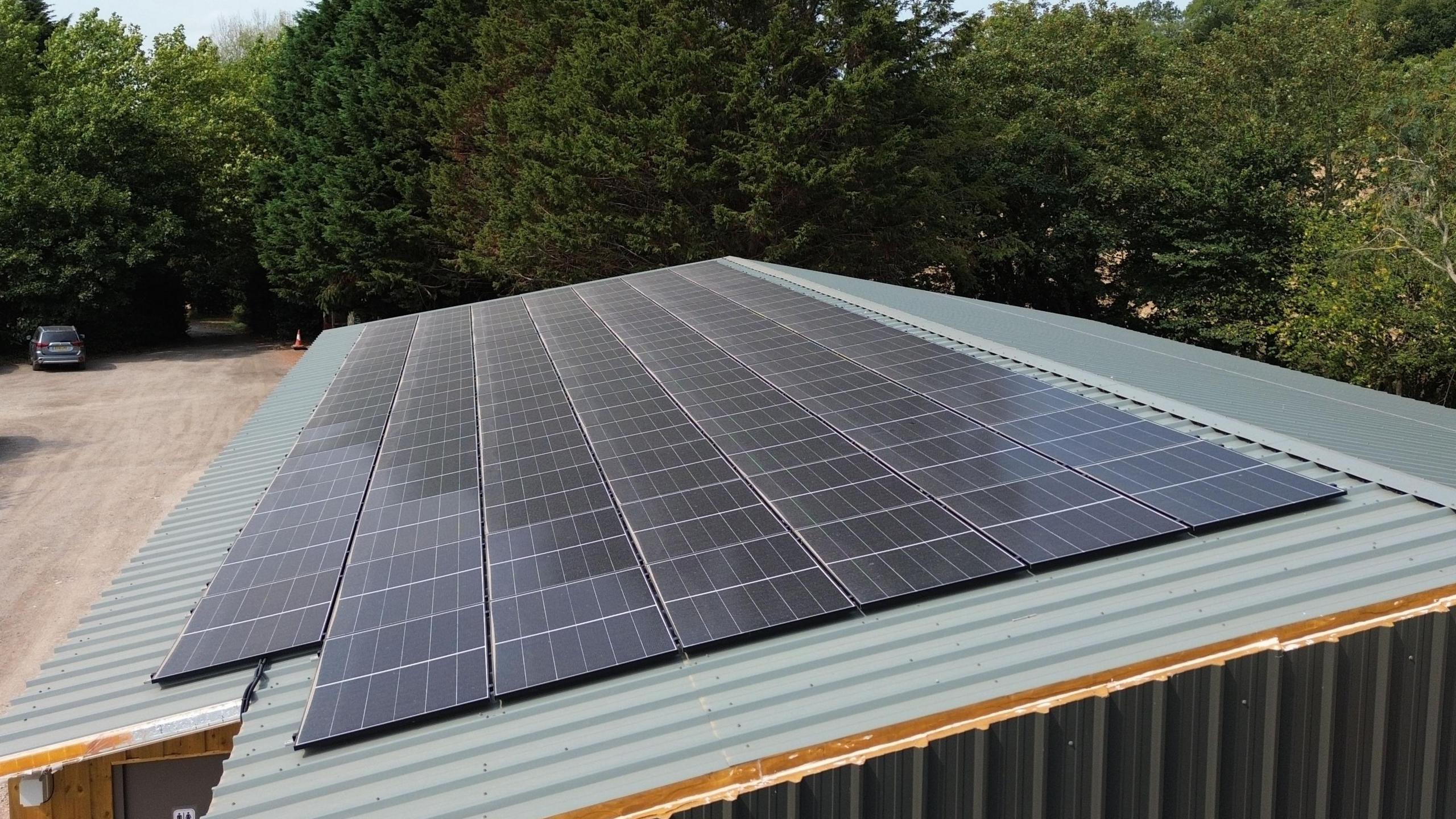
Solar panels cover the roof of the ice cream dairy, powering the freezers below
He could not have chosen a better year. In June, the Met Office declared, external it had been the sunniest spring on record, with more than 653 hours of sunshine.
The season was followed by the fifth warmest July on record.
For many farmers, it has meant poor harvests and a severe lack of food for their cattle.
But for Mr Baker's ice cream factory, it meant free energy.
"Since 1 February we've done 31.7 million watts," he said.
"Of course, all that comes off a massive bill. That means that although we're doing high-quality ice cream, we can be more competitive."
The West Country is studded with dairy farms making their own ice cream, but none use solar power to this extent.
It is a big initial outlay. Mr Baker's solar panels have so far cost him £22,000 to install, and they have taken him to 30% of his energy needs.
He now plans more panels, on more buildings, to boost his solar power to around 80% of the energy needed for his ice cream.
"My electricity bill is £72,000 a year," he smiles. "I can cut that to about £10,000.
"So it's expensive to begin with, but once you've got there, you save a huge amount."
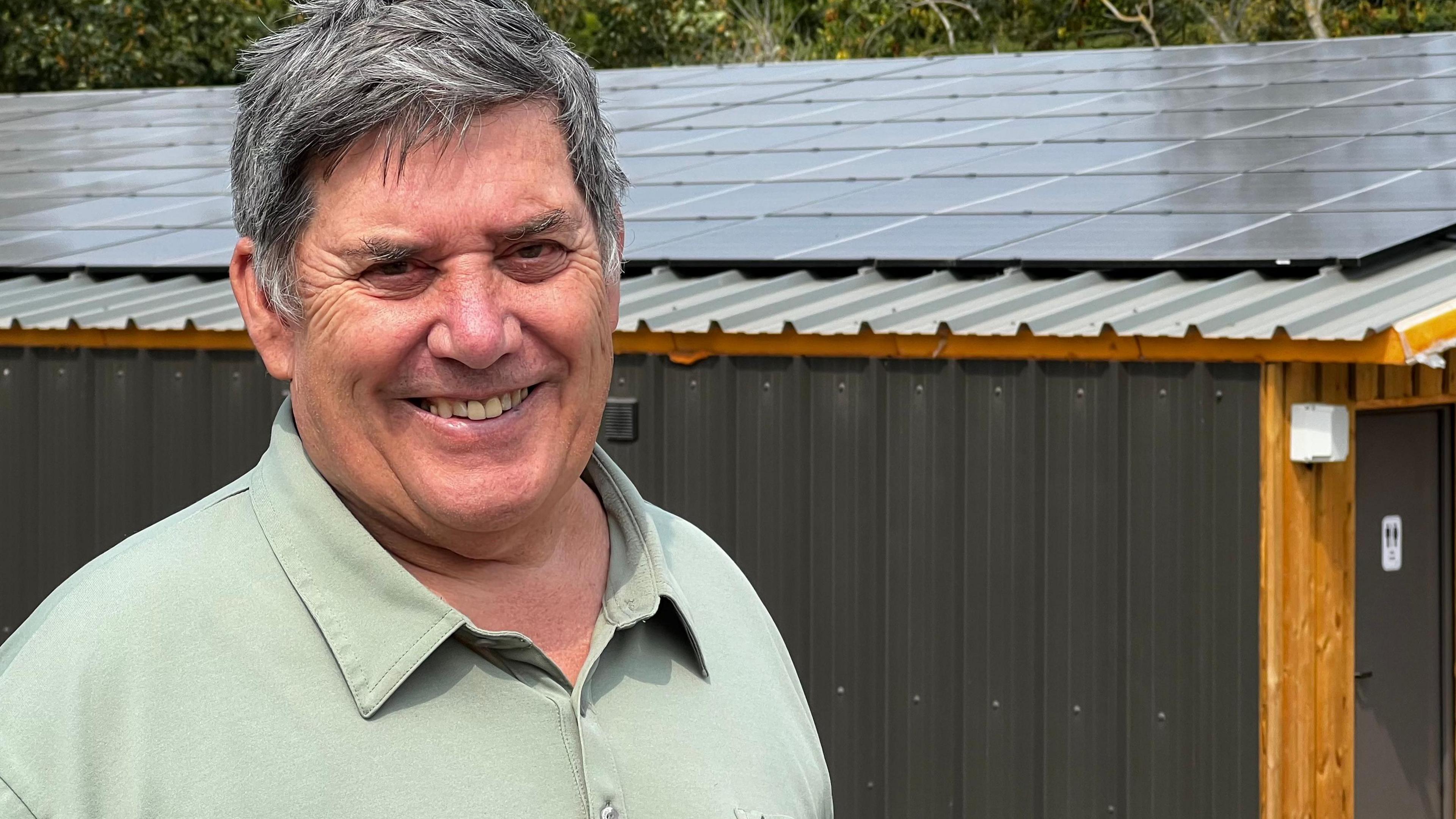
Mr Baker would like to see the public take up more use of solar panels
The shift to solar is primarily a commercial calculation. But Mr Baker insists there are bigger motivations too.
"We've all got to become much more self-sufficient and generate power ourselves," he explains.
"Because it's going to be a problem for the government and we've got to play our part locally in solving it."
There are other benefits too. The solar-powered freezers on the vans cut the need to keep the engine running.
It means the seafront ice cream vans are now quiet, with no fumes puffing over the queue of children.
'Really cool'
But when I spoke to customers enjoying a traditional ice cream at Blue Anchor Bay, near Minehead, none had noticed anything unusual before I told them.
"Awesome," said 15-year-old Thea, buying a vanilla softee with her friend Erin.
"That is actually really cool, but I had no idea!" laughed Erin.
Mr Baker hopes that one day it will be entirely unremarkable that the West Country's most iconic summer business, ice cream, should be powered by solar energy.
Get in touch
Tell us which stories we should cover in Somerset
Follow BBC Somerset on Facebook, external and X, external. Send your story ideas to us on email or via WhatsApp on 0800 313 4630.
Related topics
- Published7 August
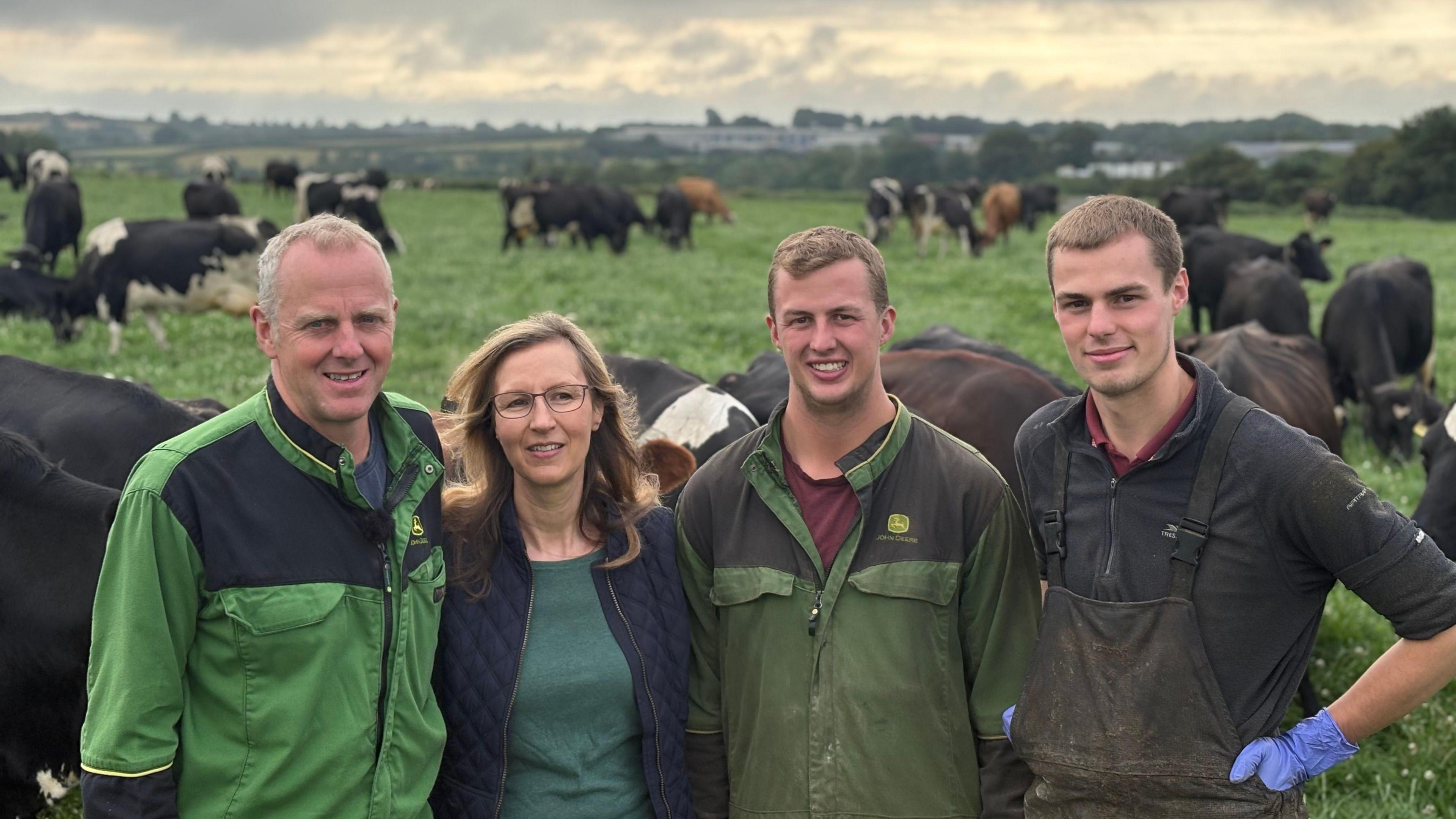
- Published7 August
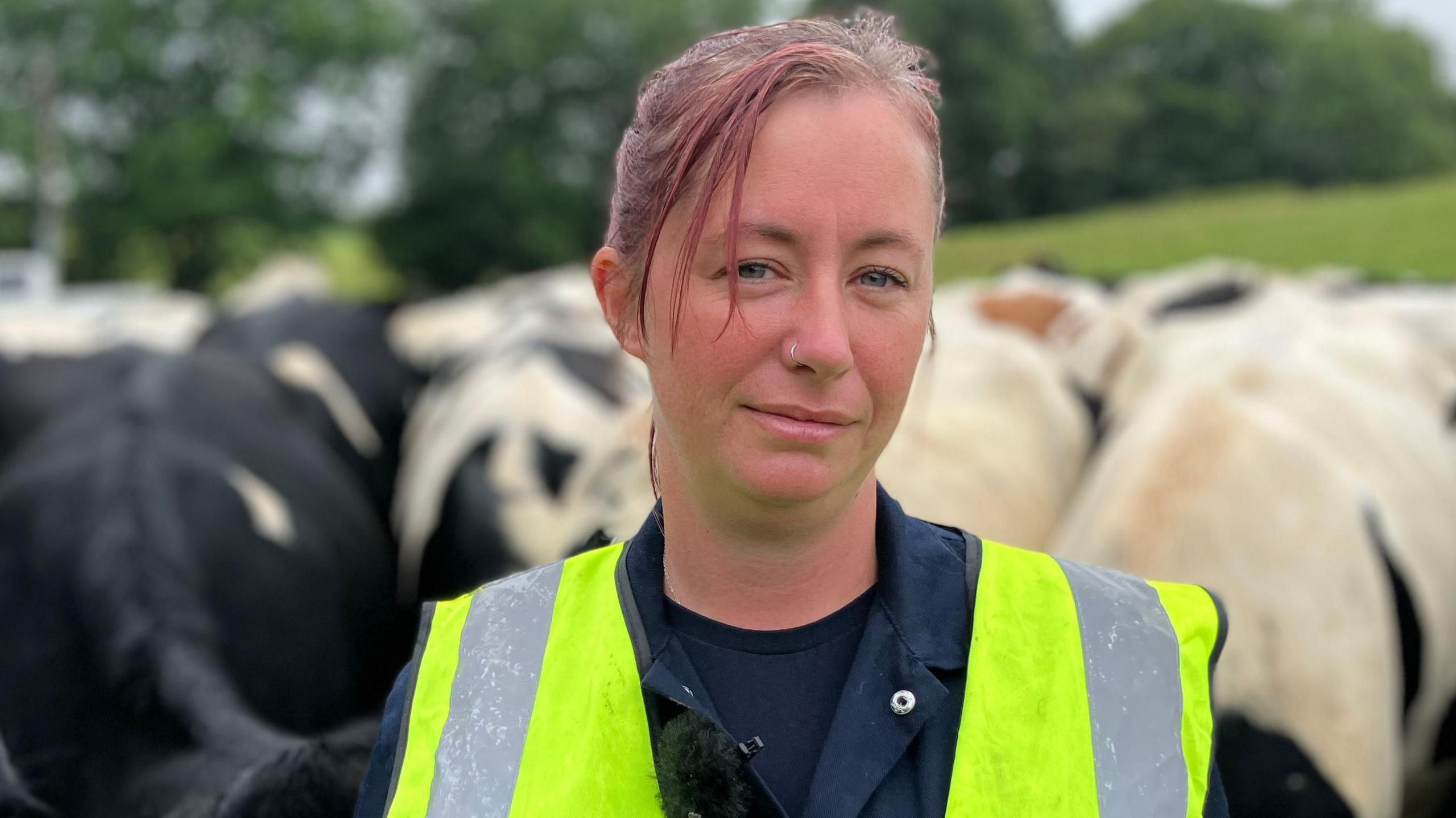
- Published15 July
